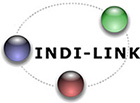INDI-LINK: Indicator-based evaluation of interlinkages between different sustainable development objectives 
The project had a number of issues and objectives that were methodically interrelated within the project plan. In the end, these interactions and linkages between the different parts of the project were not as significant as had been expected (one part of the project did not use directly the outputs / results of the other one).
The first objective of the project was to contribute to the development of selected indicators, which Eurostat uses to assess the sustainability of the EU. The second objective was to design and to test methods and tools for assessing the various aspects of sustainable development. Finally, the third objective was to draw relevant conclusions for future policy and strategy for sustainable development.
INDI-LINK: Indicator-based evaluation of interlinkages between different sustainable development objectives
Donor
European Commission, 6th Framework Programme
Project duration
November 2006 - October 2009
Project coordinator in CUEC
Tomáš Hák
Project partners
The INDI-LINK consortium consists of 9 partners: four university institutes, one national statistical institute, one public-private research institute and three private research institutions (SMEs):
- Vrije Universiteit Amsterdam / IVM, Nizozemí
- Policy Studies Institute, UK
- National Statistical Institute of Italy, Itálie
- Institute of Economic Structures Research, Německo
Environmental Network Limited, UK - Middle East Technical University / Department of Sociology, Turecko
- Wuppertal Institute for Climate, Energy, Environment, Německo
Because these partners are the coordinators and participants in many other relevant projects at the level of European Union, the INDI-LINK project can create useful synergies between projects such as MATISSE, Sustainability A-Test, SusTools, FORESCENE or MOSUS.
Project description
The INDI-LINK project followed three main objectives:
1. Further development and improvement of EU SD indicators
2. Assessment of interlinkages between different priorities of the EU SDS
3. Elaboration of conclusions for future SD policy making
To this end, the project INDI-LINK:
- developed and tested new concepts and methods for calculating some indicators used to assess the sustainability of the EU. Specifically it addressed 9 indicators:
- Unmet needs for healthcare;
- Child wellbeing;
- Green public procurement;
- Administrative cost imposed by legislation;
- External costs of energy consumption;
- Vehicle-km;
- Biodiversity index;
- Total material consumption and GDP at constant prices;
- Environmentally weighted indicator of material consumption
- based on literature research and expertise of the consortium members, newly emerging fields of decision-making have been identified, for which there are no or not satisfactory indicators yet. These were subsequently designed - a total of 17 indicators for the so-called emerging environmental issues (e.g. Appropriation of ecosystem services, Biocultural Diversity, Global land use of domestic consumption, Dislocation of environmental impacts through international trade, Food sovereignty in developing countries)
- a quantitative analysis of the relationship between selected aspects of sustainable development in the past (ex post) has been developed and various methods and models for extending the time series of indicators for the future (ex ante) through forecasting have been tested, and the most effective combination of environmental, economic and social measures directed to maximizing the the best possible synergies and to reducing the potentially necessary compromises has been identified.
- recommendations for further development of indicators of sustainable development at the EU level, for future assessment of linkages between them and for the effective implementation of the revised EU Sustainable Development Strategy have been elaborated, with a special emphasis on the integration of policies across the different dimensions of sustainable development.
Project outputs
In the course of the project 5 workshops were held, which were attended by representatives of the relevant DGs and external experts.
The documents elaborated to fulfill the objectives of the project can be found here.



